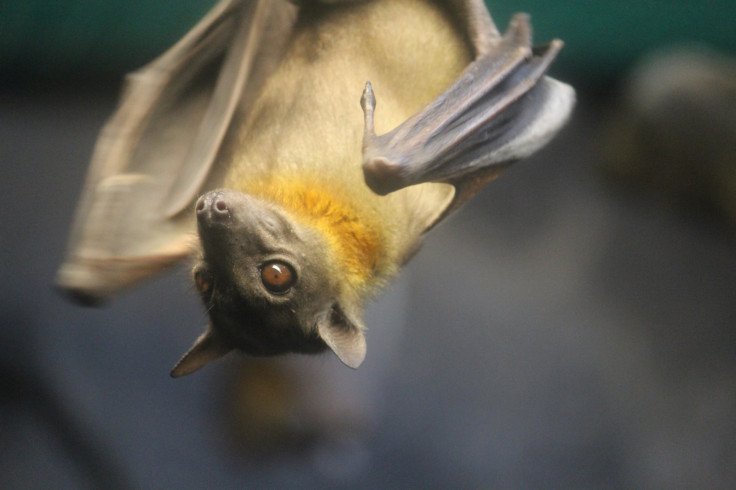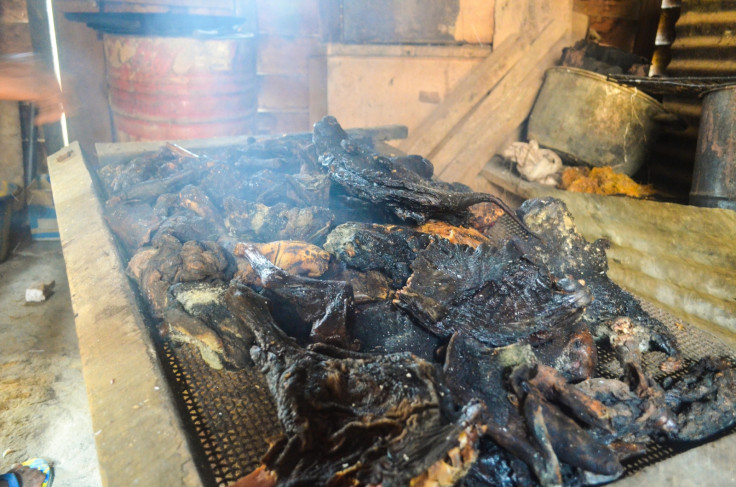Ebola Outbreak: Why do People Eat Bat Meat?

People in Ghana eat bats because it is a readily available source of protein as well as being a luxury food, researchers have found.
Experts at the University of Cambridge and the Zoological Society of London were looking to find out why 'bushmeat' is so popular in the West African country despite the risks involved.
Like many infections, Ebola is likely to have arisen from human interaction with wild animals. The current outbreak, which has killed almost 4,000 people, is believed to have come from hunting and eating bats.
Researchers surveyed almost 600 people across Ghana to find out why the practice is so prevalent, despite the risks involved.
Hunting and eating bats can lead to infection of 'zoonotic' pathogens, with the creatures in particular known for hosting more viruses than any other mammal. Transmission occurs from bites, scratches, bodily fluids, tissue and excrement.
From surveying hunters, vendors and bat meat consumers, they found a variety of methods were used to capture bats. Hunters shoot, net and scavenge them, with all respondents saying they handled live bats and had been bitten and scratched. None reported using protective equipment, such as gloves.

Four of those interviewed said people fight over bats, sometimes lying over the animal while it was still alive to stop others from taking it – often resulting in injury.
Bats were prepared and cooked in a variety of ways, with the most common being to smoke them and putting them in soup. Researchers said it appears bat bushmeat is both a source of sustenance and luxury food, as many hunters said they would keep their catches for themselves.
Consumers reported high taste ratings and relatively high prices, suggesting it is a sought-after product.
While more education and urban living decreased interest in bat meat, researchers said this is not necessarily key to limiting the practice.
"It is possible that increased household income could lead to increased bushmeat consumption, particularly as the meat appears to be seen as a luxury item," the researchers said.

Experts found that potential health risks served as a better deterrent than fines, with some participants saying this would motivate them to stop. However, this is unlikely to change behaviour, they added.
Marcus Rowcliffe, from ZSL, said: "Unfortunately, there may not be a simple way to minimise the risks of zoonotic spillover from bats. For example, bat hunting is a highly seasonal occupation and, like all bushmeat hunting, can be started and dropped at will, whereas rearing domestic animals – one possible sustainable solution for reducing bushmeat hunting – requires continuous activity throughout the year on a daily basis.
"Although many programmes suggest economic opportunity as the major motivation behind livelihood choices and success of alternatives, it may not be enough on its own. We found people in Ghana to be responsive to education pieces about the disease risk from bushmeat but also the ecological role of bats in pollination and seed dispersal.
"Working with local communities to help them find effective and sustainable solutions in line with their economic needs must be a long-term commitment."
© Copyright IBTimes 2025. All rights reserved.






















